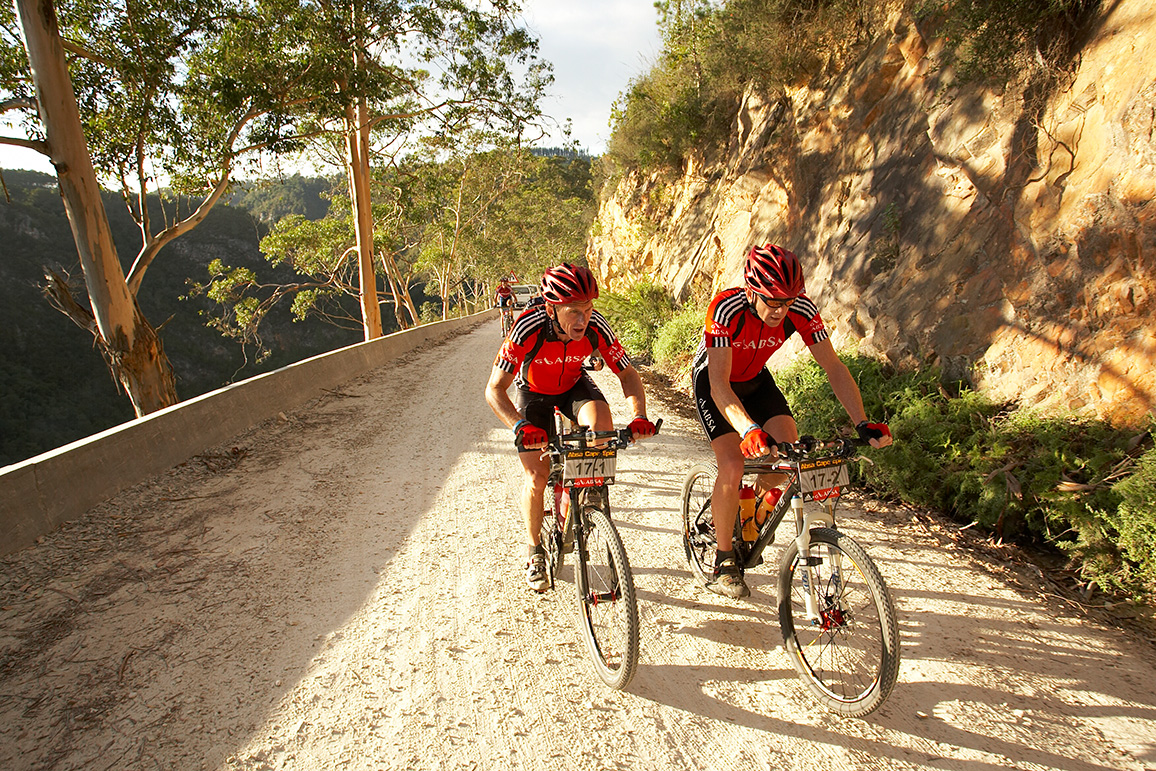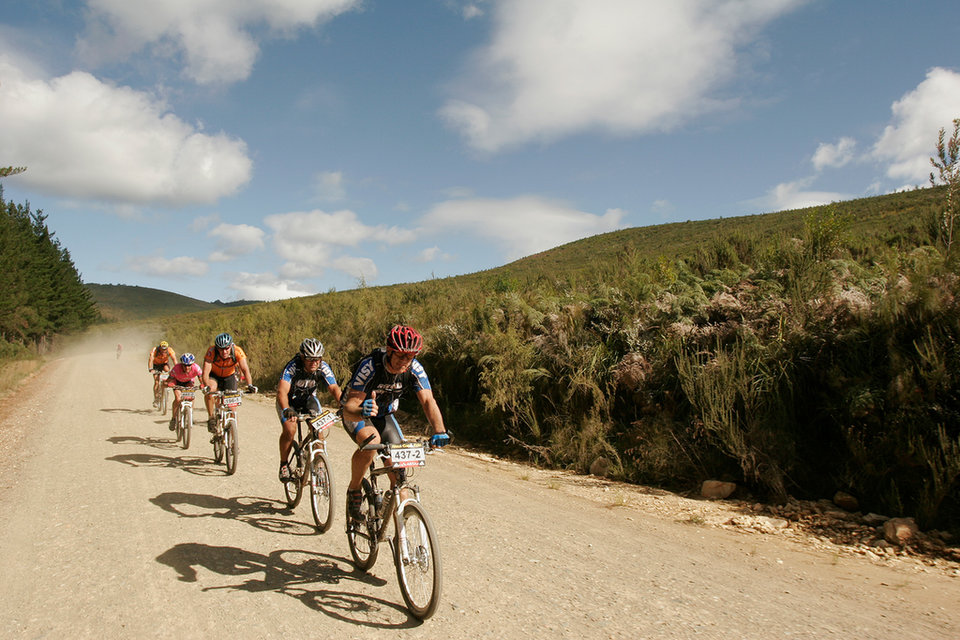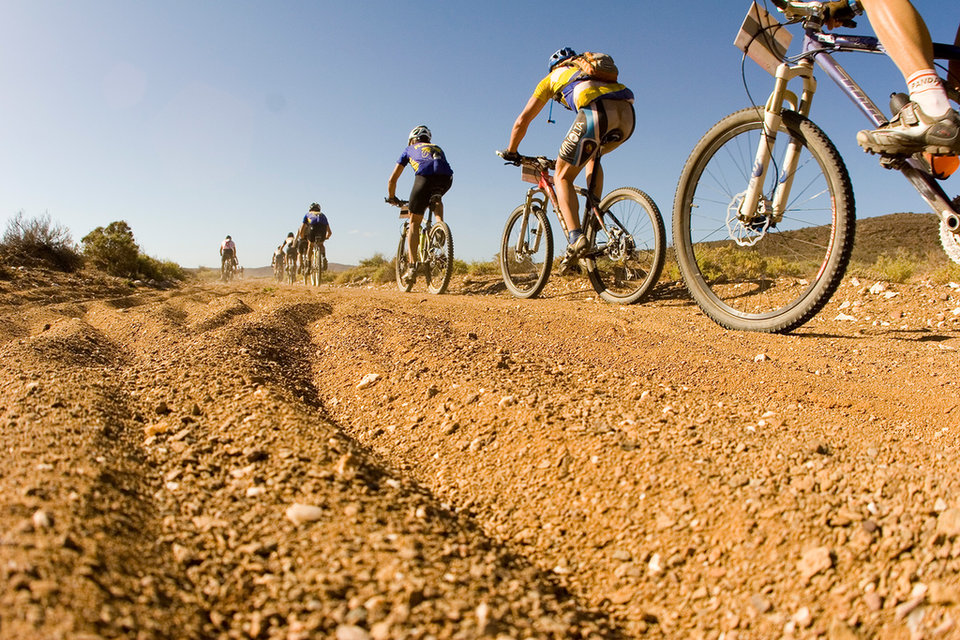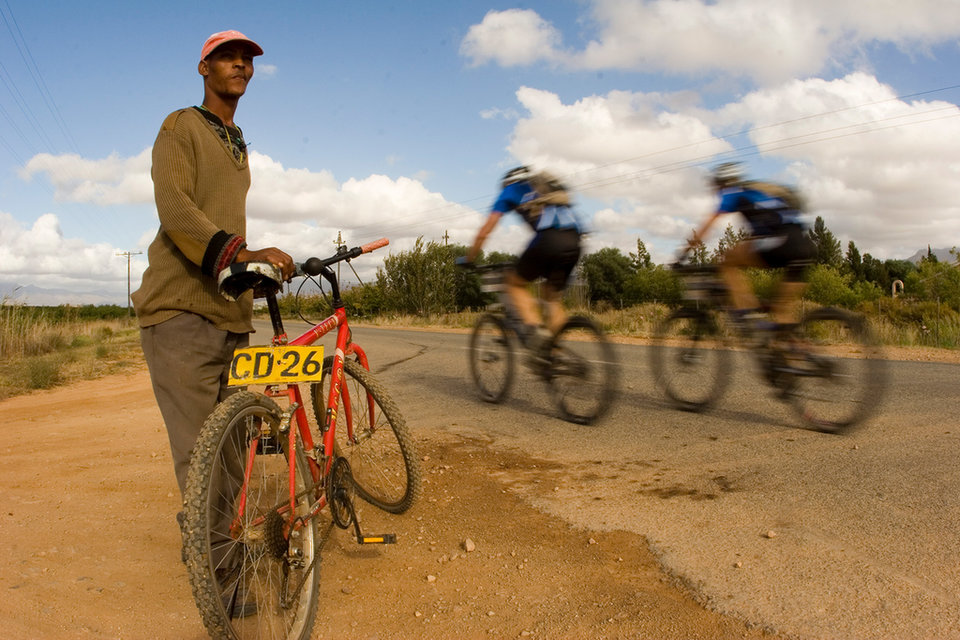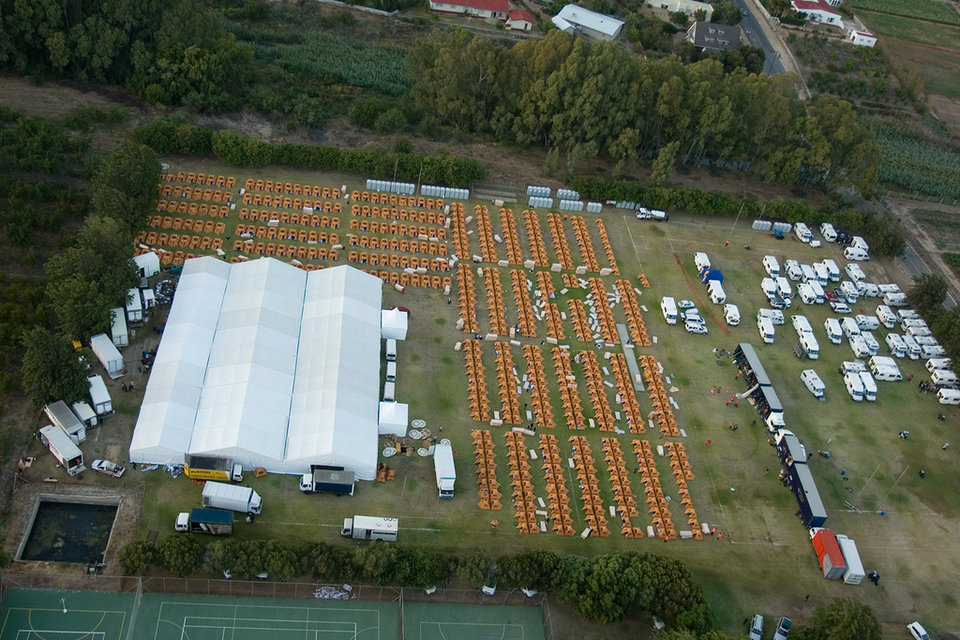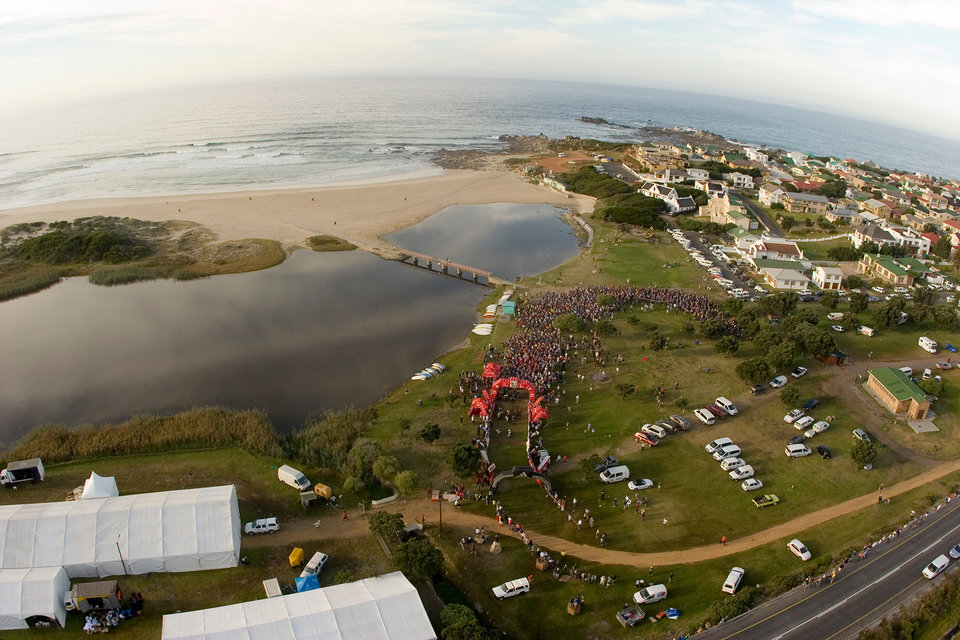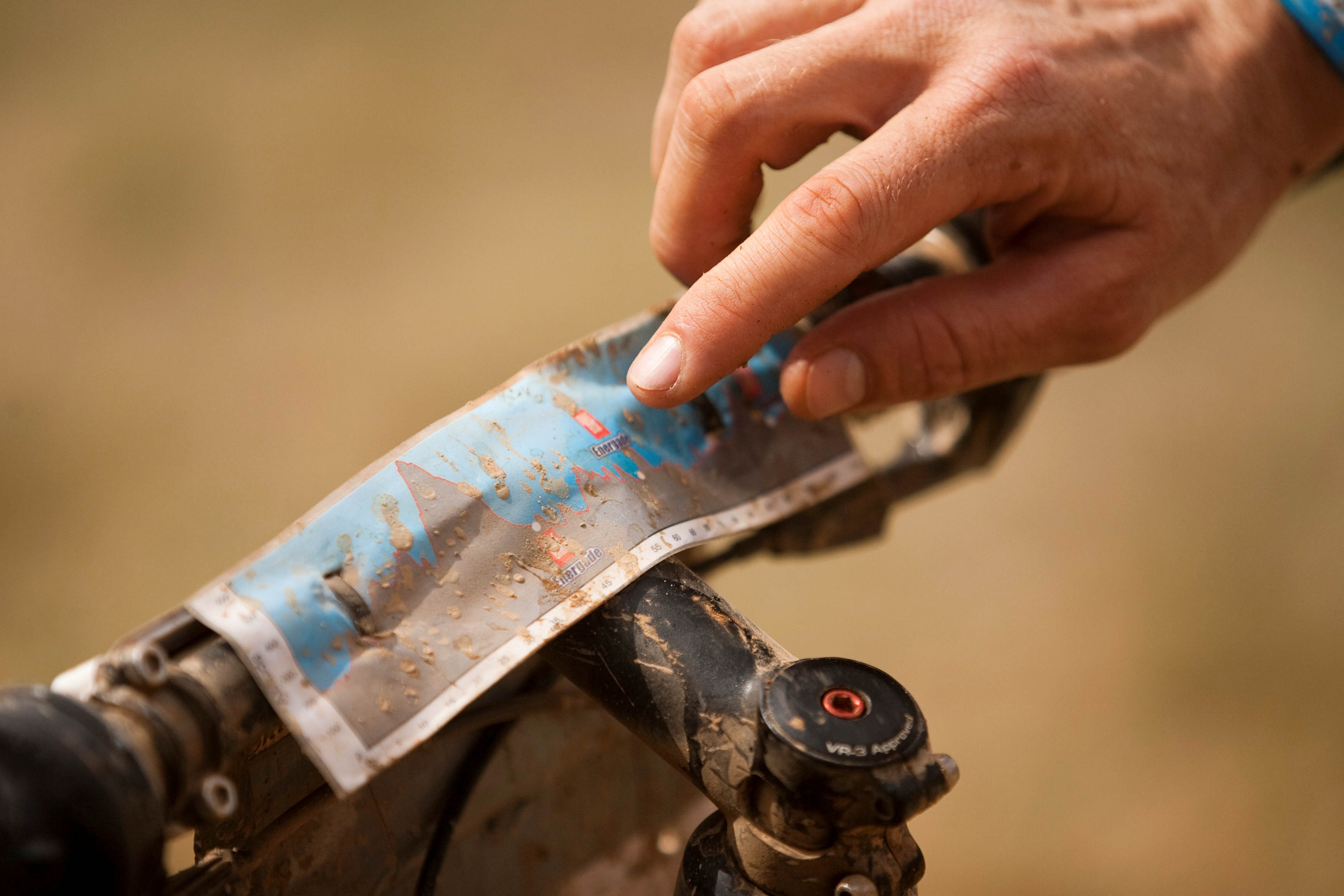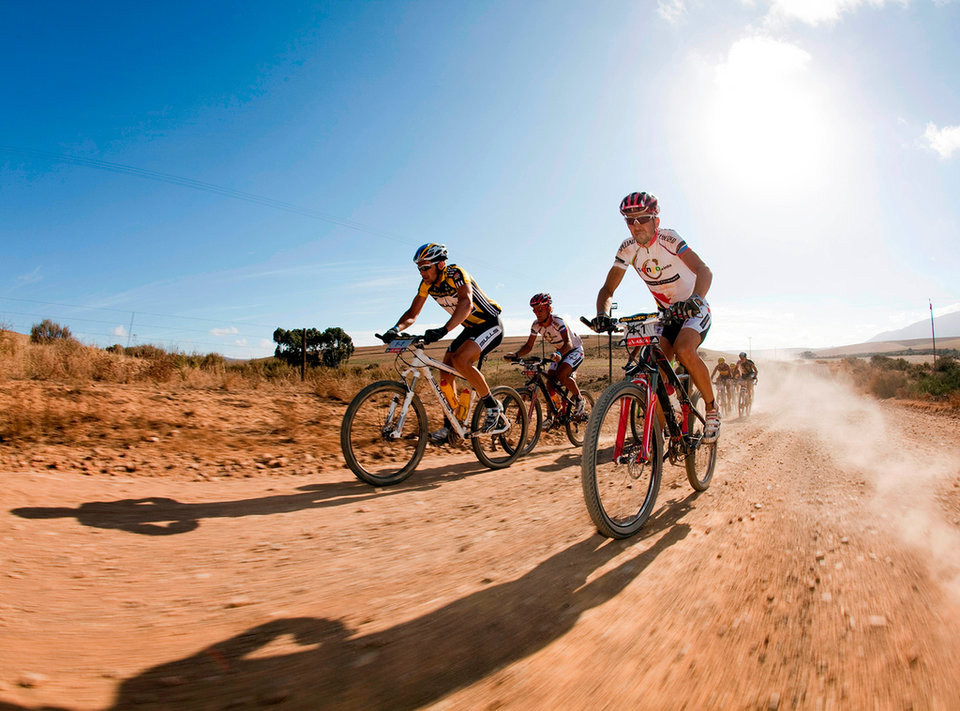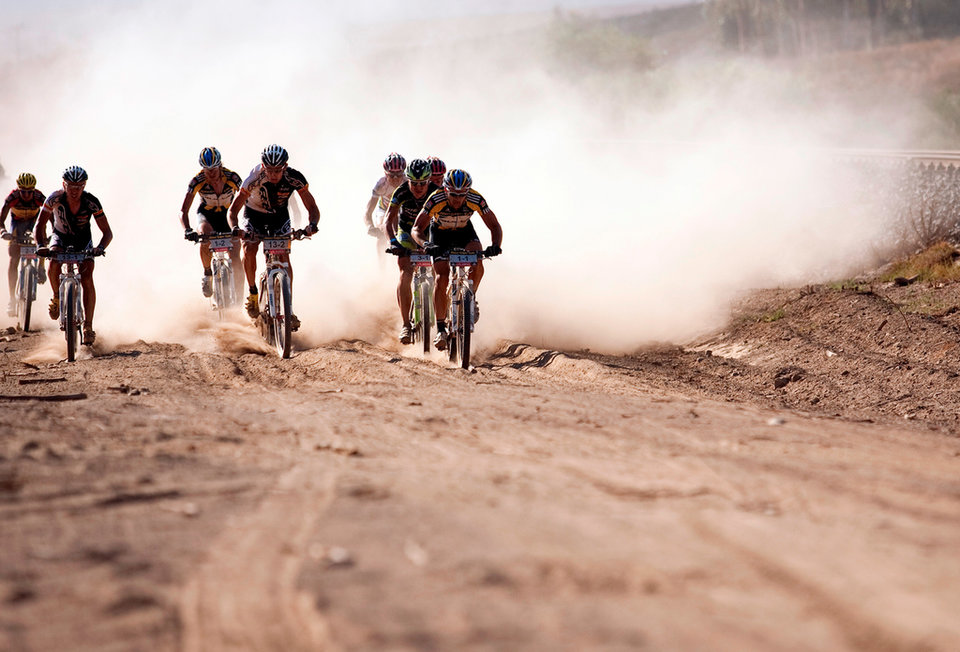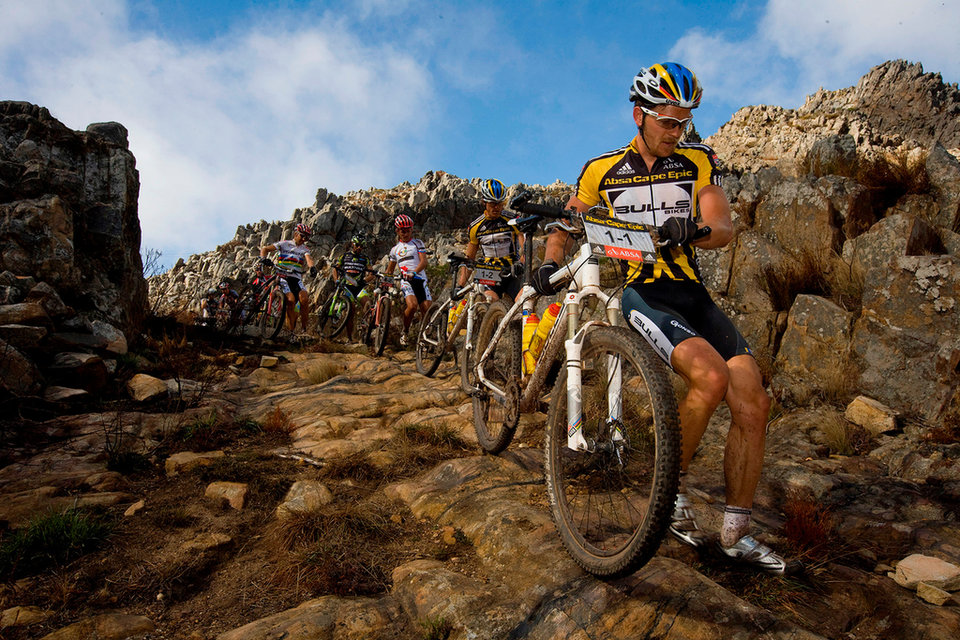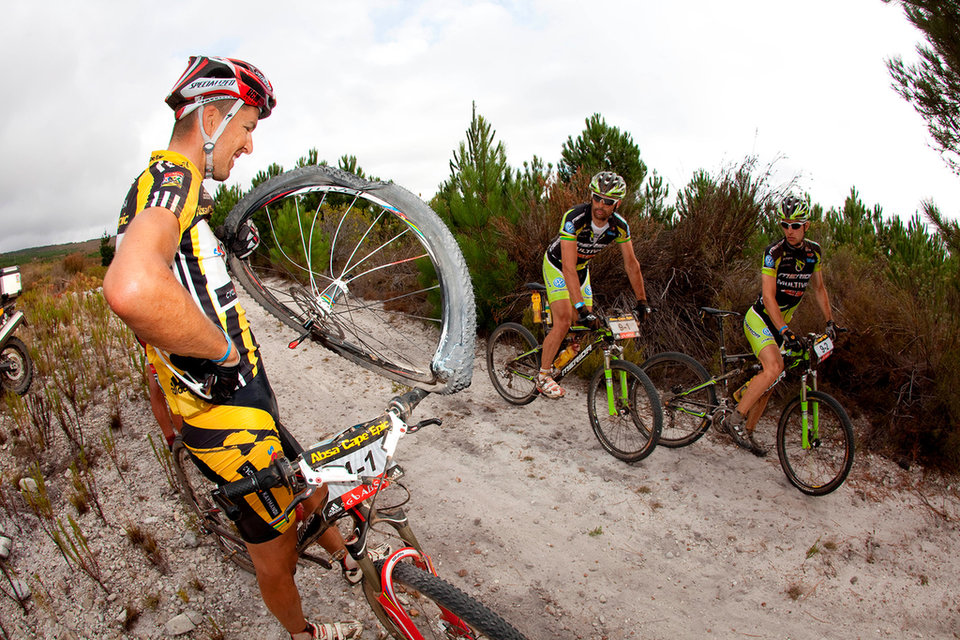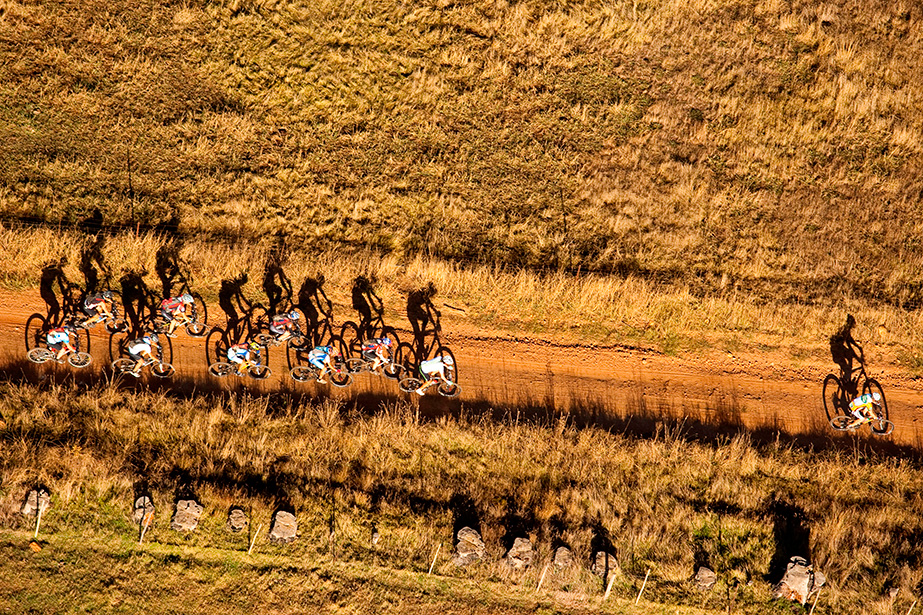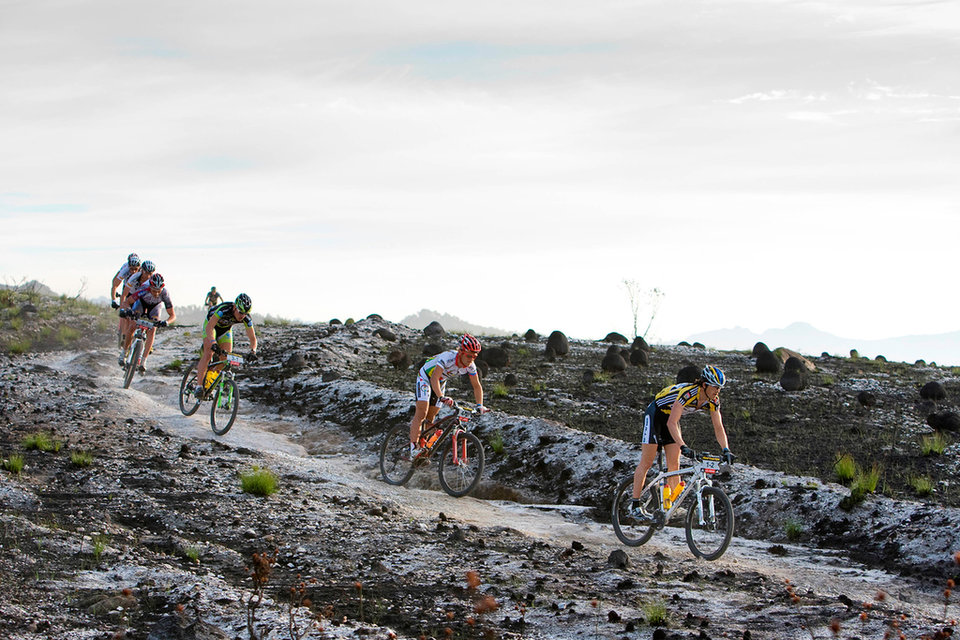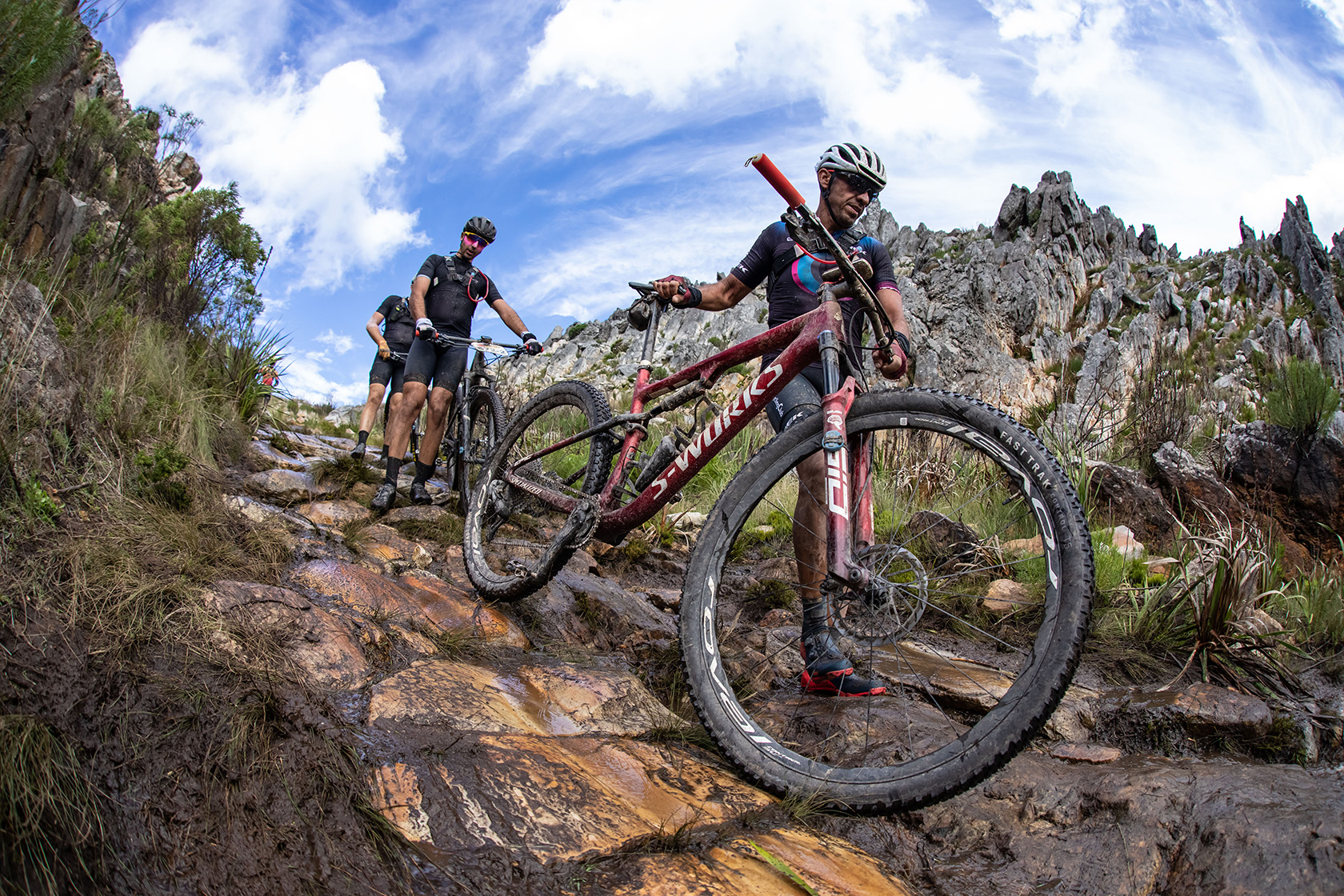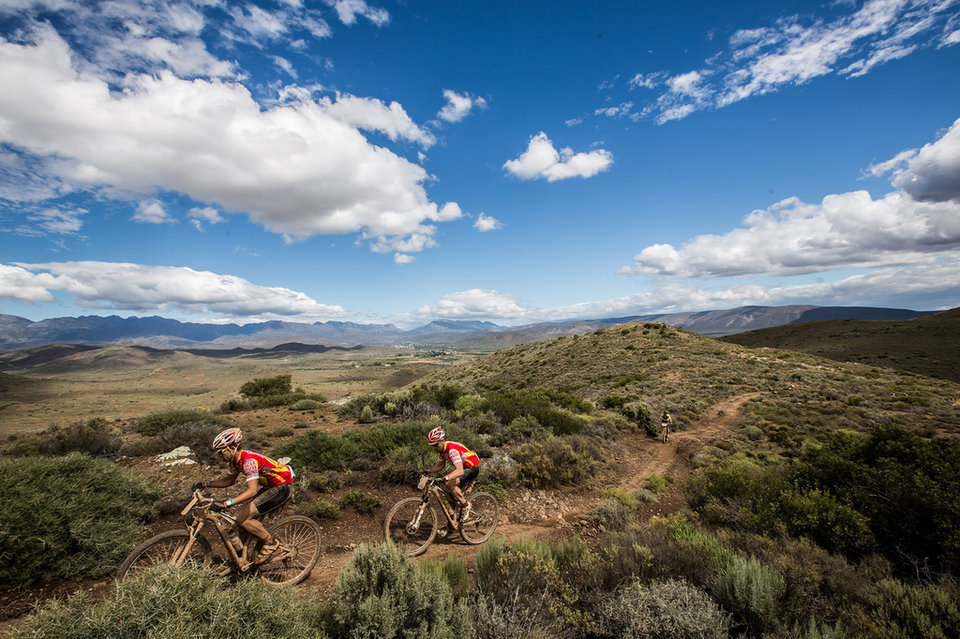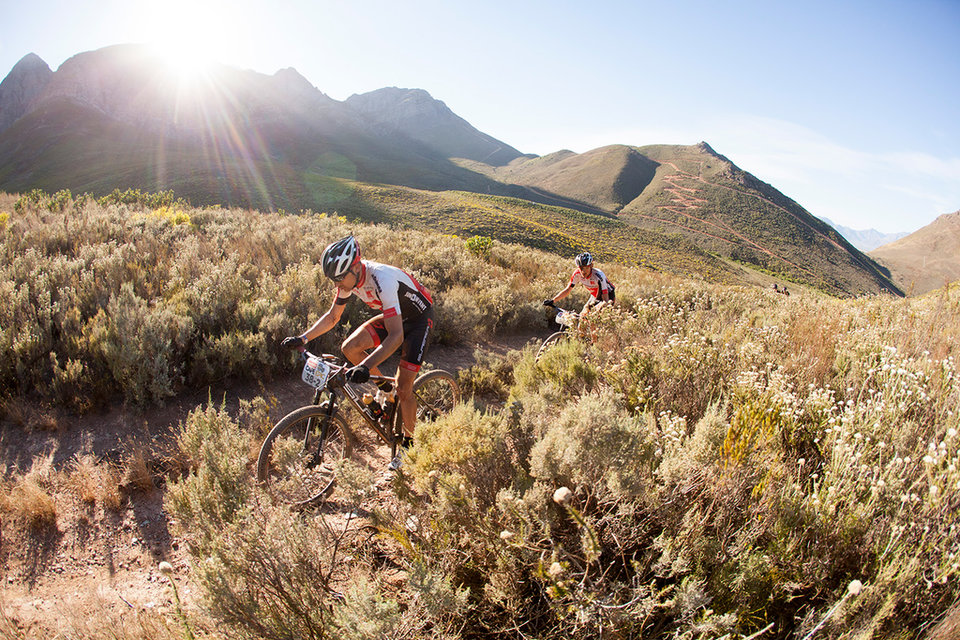
Looking Back on
20 Years
of Absa Cape Epic Routes
Since the inaugural event in 2004 the Absa Cape Epic has challenged teams with a different route for every edition. Neil Gardiner has written many of those route descriptions and is perfectly placed to delve into the two-decade long history of the courses through the Untamed. Starting with the 2008 route launch for the all-important sixth edition in 2009…
It was an eagerly anticipated evening. On Wednesday the 28th October in 2008, dignitaries, rugby stars, Olympic gold medallists, world champions and leaders of the mountain biking community gathered at Mojo Restaurant for the Absa Cape Epic Route Launch Gala Dinner.
The route is a well-guarded secret, before the official announcement each year, often leaving the rumour mill to spin and whiffle as to where the race would take the 1 200 riders: where they’d start, which towns they’d stay in and which trails would challenge them.
In the build-up to the 2009 event, there was more gossip than ever. There were whispers that the point-to-point route, the journey from Knysna to Cape Town, was to be replaced with a looping course. Detractors didn’t hold back, voicing their dismay, one likening it to when a popular South African beer brand’s label was changed, “the brand went from 70% market share to 15% virtually overnight, and it has never regained its dominance… a point-to-point does bring something more to a race, so I hope they realise that changing the label, could mean the ultimate demise of such a race.”
Master of ceremonies, Dan Nicol introduced the video that would show the audience the details, the lights dimmed and within moments all would be revealed. “The pioneering spirit that brought you the first Absa Cape Epic, now brings you the all-new sixth edition… For the first time in the race’s history, the 2009 Absa Cape Epic story begins at the foot of one of the most famous natural landmarks in Africa – Table Mountain. The race then heads into the Overberg, in search of the most exciting, beautiful and challenging routes, with a traditional finish in Lourensford,” said the booming voiceover.
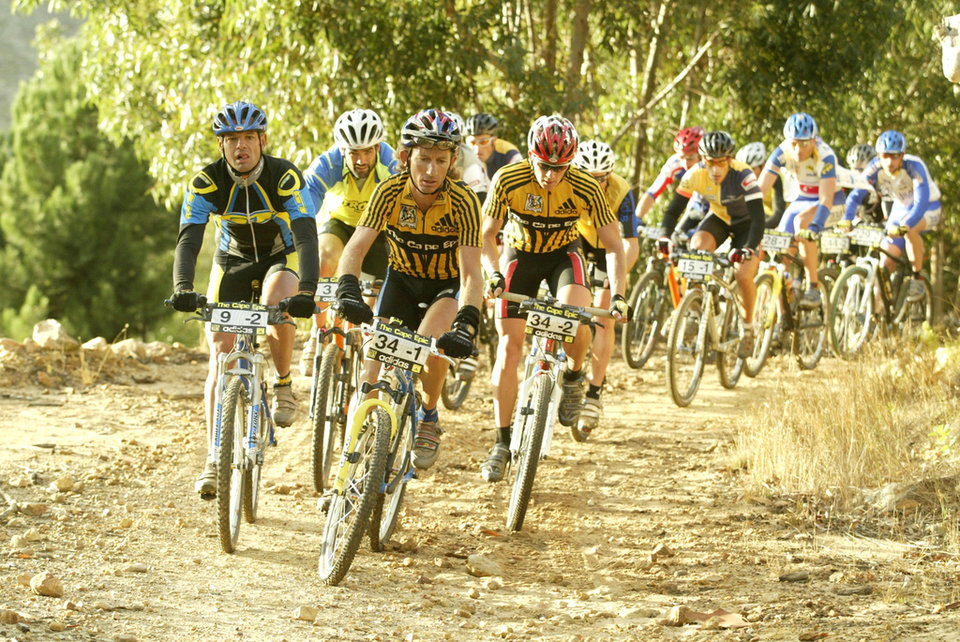
New Beginnings
The 2009 edition was to focus on three iconic mountain biking regions. It was a significant departure from the old format of linking eight towns together. The route designers had cherry-picked the very best of the territory, aiming for a more complete test of the riders, balancing all aspects of mountain bike stage racing and above all, enhancing the race experience. “Riders stay two nights in their race villages, allowing more time to experience the legendary singletrack and technical routes which make the Overberg biking heaven,” the voice over explained.
The ever-changing route’s history could be well documented with a list of the Western Cape’s towns, iconic landmarks, legendary trails, challenging climbs it has visited. As well as the Prologues, time trials and Grand Finales which have hosted the Absa Cape Epic. A deeper look reveals a past split into two. Before and after that moment in 2008. From the 2009 Absa Cape Epic route reveal the race itself and mountain bike stage racing in general changed forever. It was arguably one of the event’s biggest impacts on the sport, a major milestone in mountain biking history.
The Designer
The Absa Cape Epic’s lead route designer is Hendrico Burger. He was one of the first mountain bikers in South Africa and has decades of experience in the cycling event industry internationally. A keen observer of the human condition, with a natural aptitude for people. His love of people, which is almost invariably reciprocated, as you will see is key to the race’s continued success. There’s no one better positioned to deliver the unique ride experience than the Stellenbosch resident and continue the ride focused legacy of the world’s premier mountain bike stage race, year-after-year.
The mountain biking landscape looked very different in the early 2000s, when the event was launched. Stage racing was a relatively new addition to the off-road event calendar. Burger recalls: “Then, it was all about this ‘achievement’ of riding several hundred kilometres. It was just… we cycled for seven or eight days, and we rode from one point to the other… nobody had done it before. They could say ‘I've done the Epic; I rode for eight days from Knysna to Cape Town.’ But after a couple of years, people began to say, ‘You know what? Big deal!’”
Change Afoot
The mountain biking scene was evolving, and it took no small amount of vision to adapt with it and stay ahead of the curve. The event was already establishing a reputation of ‘pushing the limits’, remaining at the sharp end of the sport. In those early years founder Kevin Vermaak stayed close to the riders, talking to them directly, taking in their feedback, from the back enders to the stars.
Mountain biking had only made its Olympic debut at the 1996 Atlanta games. Bart Brentjens’ gold medal winning time was 2 hours, 17 minutes and 38 seconds on a track comprised of open flowing trails with very few obstacles. Compare that to today, where we have several technical sections that would have scared the downhillers in 1996. And they’re done in under 85 minutes, exhausted. As viewers and riders, we seem to have all but lost our tolerance for the boring bits in-between.
Call it an attention span thing, but there’s no denying that we demand a more concentrated, diverse experience in everything we do. We want to do more in less time, because we have more to choose from and (consequently) less time. Our appetite is insatiable.
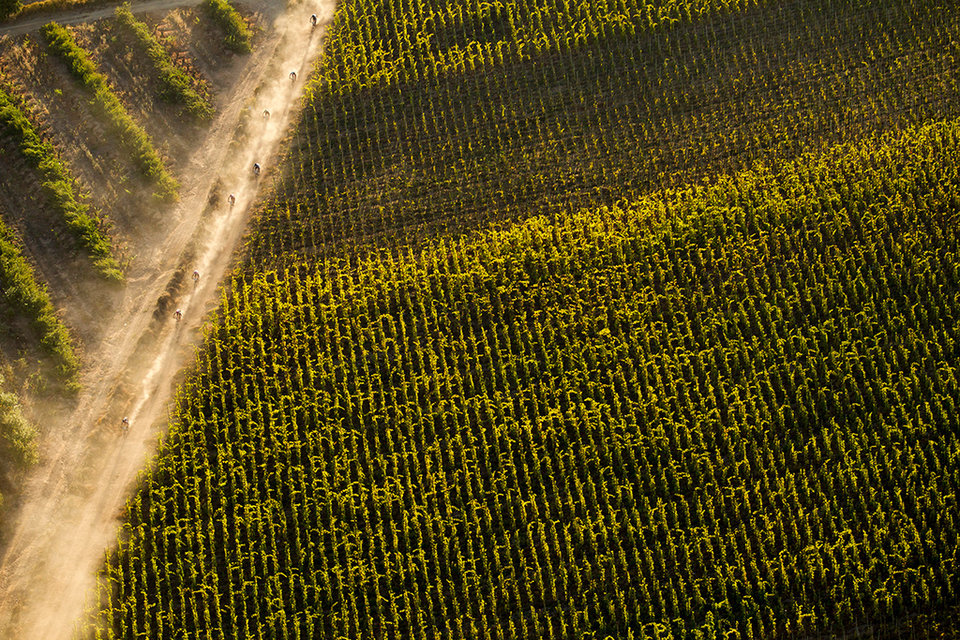
Ever Improving Bikes and Riders
In 2004, even the top pros were riding on aluminium hardtail frames, with narrow 26-inch tyres. “The bikes and the riders have improved dramatically,” says Burger. “As the riders demanded more of the route, their abilities improved, and they demanded more of their bikes and then demanded more of the route and their abilities improved. And so on.”
That pivotal route format change presented a new, larger canvas to the route designers. “When we began using the ‘cloverleaf’ style, the routes could evolve more, in each edition. Stages became shorter, and all the better for it. No longer was it a big deal that you rode however far, from this town to that. It was now: ‘I rode this trail, and I tackled that downhill.’”
Purists may still lament the demise of the Knysna to Cape town route. However, it featured less than 10% singletrack – any mountain biker’s holy grail. Burger says, “Our mandate now is to have between 35-50% singletrack on any stage and to balance the downs with the ups. It takes a special skill to ride singletrack climbs. We want to create a full test of each rider’s skills by providing singletrack descents and climbs, long steady climbs, as well as sections of flats.”
In the modern era, we have riders from each discipline competing in virtually all disciplines. The 2022 Absa Cape Epic winner, in the women's category, Sofia Villafane is a prodigious gravel racer having won some of the world’s biggest gravel races. The 2023 edition saw Christopher Blevins and Matt Beers take a hard-fought win over eight days. Blevins also won the 2021 short track cross-country (XCC) World Championship, in 19 minutes. 2022 Prologue winner Pauline Ferrand-Prevot holds world titles in road, XCC, cross-country (XCO), cross-country marathon (XCM), cyclocross and gravel. We’ve also seen died-in-the-wool road racer Vincenzo Nibali, who has won all three Grand Tours, at the sharp end of the Absa Cape Epic field. While, the current Olympic XCO Champion and Tour de France stage winner, Tom Pidcock was set to ride the 2020 race alongside five-times champion Christoph Sauser. Who knows who we may see plying their trade in the coming years.
Relationships Matter
When it comes to putting together all the components of an Absa Cape Epic, the driving forces of evolution are very much at play in Burger’s approach. It’s a multifaceted and complex process, involving timing, permissions, some politics and good old-fashioned manners. “Especially now when we use far more privately owned land, compared to government or agency-managed land, many of the landowners pride themselves in their private mountain biking trails. Some are unmissable, and we learned to work with the guys, get a partnership going, and trust – not what’s in it for us and for them. We also want to leave behind a legacy every year. That’s what’s progressed over the 20 years,” the route director stated. Evidence of this is an almost overwhelming selection of superb trails in the Western Cape, where the race has visited.
Another of Burger’s challenges is how to join up all of these great trails. “A lot of people don’t realise how much time and money we spend in developing existing trail networks, but our team’s real skill is putting them all together. That's what we do. Sure, you can ride those trails, but no one can link them in the way that we link them. We go back to certain areas again and again but the main thing is, we never use the same trails in the same way. We always add something new – a different twist,” says Burger in a rare moment of pride.
Today it’s much more about long-term relationships and interdependence. “It’s not to say they did it wrong in the past. It’s just how it developed. When I got involved full time with the route, it was still a case of ‘Oh here comes the Epic’ and now it’s ‘Great – the Epic is coming!’ We helped change old mindsets. We can't just arrive and say we are the world's premier event, and you need us. We need to make sure that they would like to have us back, to make sure there's something in it for everyone.”
Refusing to name any personal highlights, Burger defers to former race director Kati Csak and her team. “She will say Groenlandberg is the iconic landmark of the Epic, the climb and the descent. Others will say Table Mountain and Tulbagh are highlights.” But as he started to warm up, Burger admitted, “For me, personally a day I remember was Stage 5 in 2019, Grabouw to Stellenbosch. I will say the regions we’re in are all highlights… trails around Hermanus, Stellenbosch and Wellington. But then again when we’re building 40km of trails in a new area now, so that’ll be my favourite soon…”
Always looking forward.
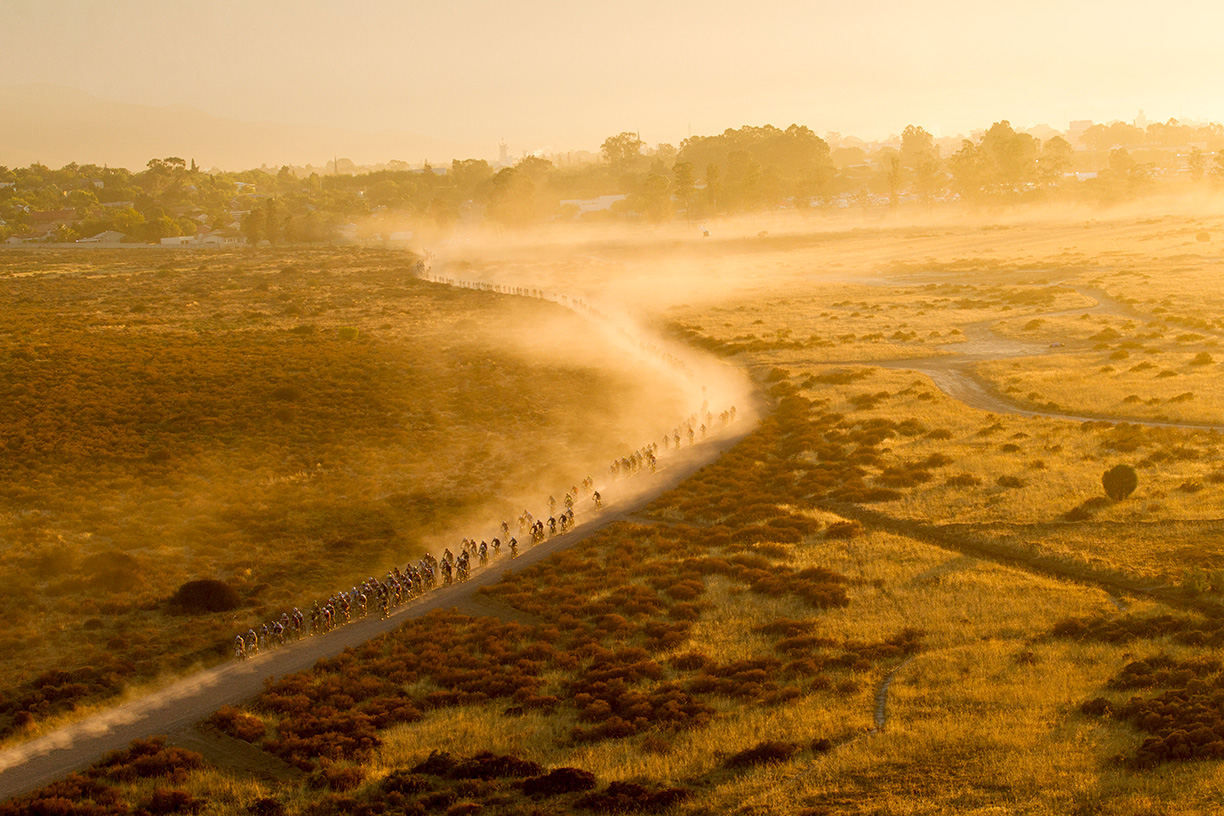
Route Director's Tip
Straight away there’s the longest climb and the longest descent of the day. Then the fun stuff starts. We linked up the very best around Meerendal so it’s worth really savouring these trails and enjoying the moment – the time you’ll make up by racing full gas has minimal rewards compared to the rest of the week.
